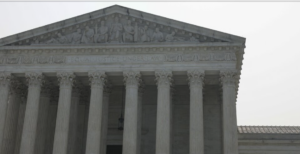They view the decision as a victory for individual merit and a step towards a color-blind society. These candidates argue that ending affirmative action will promote equal opportunity and fair competition based on qualifications rather than race or ethnicity. They believe that this ruling aligns with their principles of limited government intervention and equal treatment under the law. The celebration of this ruling by Republican presidential contenders reflects their stance on affirmative action as a contentious policy issue.

The Supreme Court’s decision to roll back race-conscious admissions policies has sparked a division among the public, with Democrats and social justice advocates expressing concern over the loss of policies aimed at improving racial diversity and addressing systemic racism, while conservatives view it as a return to a merit-based admissions system.
The conservative majority on the court, including three justices appointed by former President Donald Trump, determined that the admissions policies of Harvard University and the University of North Carolina violated the equal protection clause of the Constitution by employing race in a negative manner.
Republican presidential hopefuls celebrated the ruling, with Trump praising it as a “great day for America” and crediting his appointment of conservative justices for making the ruling possible. Florida Governor Ron DeSantis also supported the decision, stating that college admissions should be based on merit rather than race or ethnicity.
Former United Nations Ambassador Nikki Haley highlighted the ruling’s potential to provide equal opportunities for all students, regardless of their background, and help them achieve the American dream.
The decision has underscored the highly politicized nature of race-conscious admissions policies and their impact on higher education. It has elicited both support and criticism, reflecting the ongoing debates surrounding affirmative action and equal opportunity in education.
